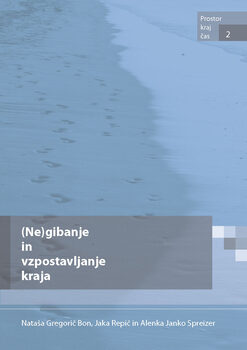(Ne)gibanje in vzpostavljanje kraja
Movement and mobility, in its various modes, have strong implications for social, political and cultural dimensions of peoples’ daily lives and their broader social realities. The book addresses individual experiences of movement, focusing on spatial and temporal implications of movement and mobility. The core idea is that mobility and movement engender moving places – places the location of which is not geographically fixed but relative. Places such as home and homeland appear to be fixed and immobile, but in practice they are always contested and depend on practices, imaginaries and politics of movement. They are continuously redefined through given social, political, historical and economic contingencies. The book explores the interrelatedness between spatial configuration and practices and politics of movement, mobility and immobility. Ethnographically, the book explores the specificities of given regions, addressing two basic topics of place-making linked through movement. The first one is relationality, i.e. relations between centres and peripheries as well as relations between people and places as they are generated through movement. Both topics are explored ethnographically and comparatively, enriching theoretical discussion on movement, mobility, immobility and place making.
Downloads
Download data is not yet available.

17. September 2013
Series
Institutes
Copyright (c) 2013 authors and ZRC SAZU
License

This work is licensed under a Creative Commons Attribution-NonCommercial-NoDerivatives 4.0 International License.
Details about the available publication format: PDF
PDF
ISBN-13 (15)
978-961-254-483-6
